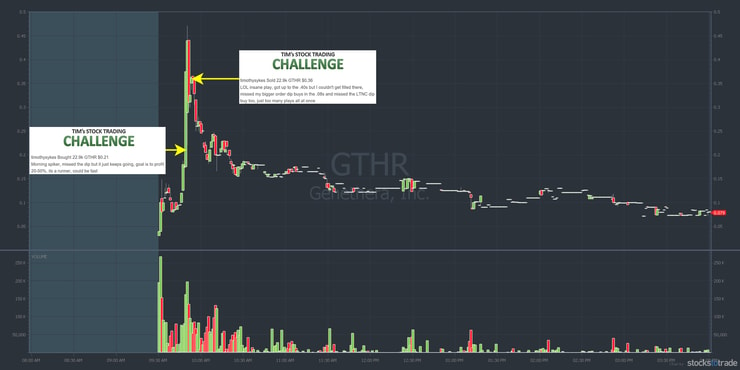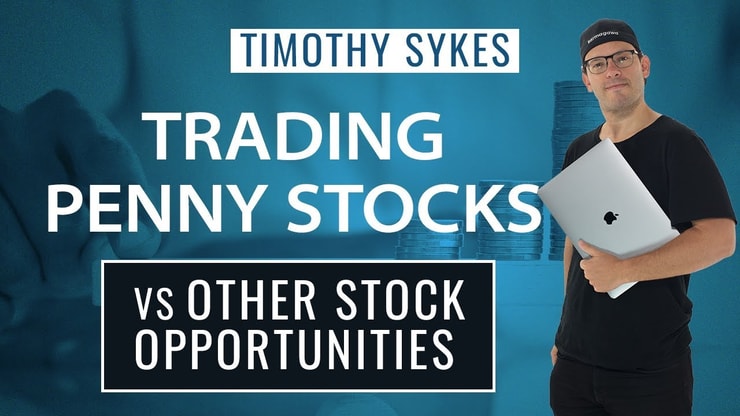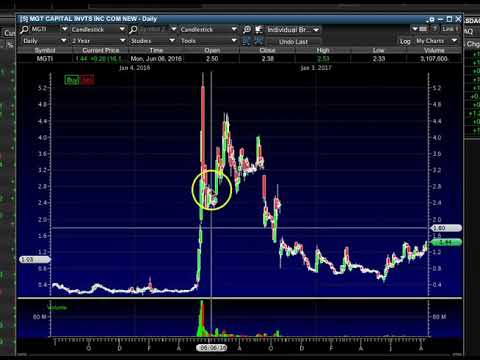Penny stocks are a niche market — which means they won’t always be in line with the major indexes. While the Dow, S&P 500, and Nasdaq keep reaching new highs, our niche has slowed down.
That’s fine because it opens an opportunity to learn. There’s no better time to prepare for the next time penny stocks get hot.
I know everyone wants to make big $, but the most rewards any trader will achieve happen over time so you must learn to be aggressive, and prepared, for solid opportunities, then pull back & trade less or smaller when no truly great opportunity presents itself, adaptation is KEY!
— Timothy Sykes (@timothysykes) April 8, 2021
It also means time to enjoy life a little. Like this…
Table of Contents
Kyle and Huddie Take Dubai
Last week was a blast! Kyle, Mike “Huddie” Hudson, and I went to Dubai to celebrate each passing the $1 million milestone.* (Be sure to congratulate Kyle and Huddie in the comments!) It was a well-deserved vacation. They even got some press coverage from Lovin Dubai, which led to an interview you can watch here.
(*These results are not typical. Individual results will vary. Most traders lose money. Traders like Kyle and Huddie have the benefit of many years of hard work and dedication. Trading is inherently risky. Always do your due diligence and never risk more than you can afford to lose. I’ve also hired Kyle and Huddie to help in my education business.)
Normally it’s just me trading from crazy "offices” with a view, but now my top https://t.co/occ8wKmlgm students are getting into the fun too & I’m SO proud to be here in Dubai with @MikeHuddie & @traderkylec as we celebrate each of them passing $1 million in trading profits! pic.twitter.com/XPW84OVwvK
— Timothy Sykes (@timothysykes) April 8, 2021
Lost and Found Laptop
Our vacation wasn’t completely stress-free. Kyle misplaced his passport and Huddie walked away from a profitable trade.
Then we went zip-lining, and I left my laptop behind when we returned to the hotel. I had to give a webinar on Friday on Huddie’s laptop. Luckily, mine was there when I went back for it…
I FOUND MY LAPTOP, WHEWWWWWWWWWWW, THANK GOD!!!!!!!!
— Timothy Sykes (@timothysykes) April 9, 2021
One BIG takeaway from this trip…
You MUST pay attention to your personal schedule and mindset.
I took far fewer trades last week — partly because the penny stock niche slowed down. But also because it was such a busy week. And we weren’t just having fun. We also worked hard filming. I was exhausted by the time the market opened.
More on the importance of personal schedule in the Trade Review. First…
Trading Mentor: How to Find Your Trading Niche
My niche is penny stocks. It’s what I love and teach. (I’ll explain why below.) YOU have to decide which niche market is best for you.
But remember, it’s not just penny stocks vs. forex or large-caps. Within a niche, there’s not only one way of doing things. You can always ‘niche down.’
How? First, you need to understand…
What Is a Niche Market Strategy?
Let’s step back from trading for a moment and look at niche market strategy as applied to small businesses. Many successful business owners learn, through trial and error, about the Pareto principle.
What’s the Pareto principle? It’s more commonly called the 80/20 rule. The idea is, roughly 80% of revenue comes from 20% of clients/customers. With that in mind, many small business owners ‘niche down’ to focus on the type of customer that makes up the 20%.
Similarly, many business owners find that most of their revenue comes from a core product. So they focus on selling that core product with everything else being the icing on the cake.
Does the Pareto principle apply to trading? It’s not an exact science, but check it out…
More Breaking News
- Apple Stock’s Stormy Weather: Time to Adjust?
- Standard Lithium Takes Center Stage: A Stock to Watch?
- SXTC Stock Soars: Time to Invest?
Niche Market Trading
My top students all go through a period of trial and error. Eventually, they find one or two ‘bread-and-butter’ setups. They know the setup so well that it’s a matter of rinse and repeat.
I’m not suggesting you should only trade one setup in the long run. But at first, your job is to find your top trading pattern. That’s your niche market trading strategy.
How to Find Your Trading Niche
Finding your personal trading niche is a matter of experimentation. You have to test and tweak.
Test different setups using small position sizes. Or paper trade using StocksToTrade. If you don’t know what setups to test, then you need to study first. (Keep reading for recommended study materials.)
Here’s a hypothetical example…
Say you study two hours a day for six months. You learn to recognize the patterns that make up my 7-step framework. But you still don’t know what works for you. So you decide to practice breakouts, panic dip buys, and shorting first red days.
Crucially, you keep a trading journal to track data. You track the setup, percent gain/loss, OTC vs listed, etc. You gather as much data as possible.
Eventually, you begin to see which strategy works best. And it might not be what you like the most. Maybe you love shorting first red days but the data says you’re much better at breakouts.
Based on the data, you focus on breakouts until you master the setup. That doesn’t mean you won’t trade any other setup. But you trade small until you’re confident a setup is working. Then, over time, you can size up.
Why Penny Stocks?
If you’re brand new to penny stocks, check out my FREE penny stock guide. (Don’t overlook that resource if you’re new. There’s a lot of valuable information there.)
With all the options available, why focus on one of the most hated niches in finance? Why not focus on large-caps, ETFs, or forex?
Watch this video for my take…
Trading Penny Stocks vs. Other Stock Opportunities
Frankly, I’ve found penny stocks to be more predictable. I’m not saying it’s easy. But with other trading vehicles, you’re up against the best and biggest. Why try to beat better and more informed traders with much bigger accounts? Let alone algorithmic traders, hedge funds, and prop firms.
Then there’s the potential volatility. Sometimes the most fundamentally flawed company in the world can be the biggest spiker in the market. Volatility creates opportunity.
It’s a beautiful niche if you respect it and take the time to learn it. And penny stocks offer niche strategies that you won’t find with other kinds of plays. Watch this video for valuable lessons about niche trading strategies…
How to View and Utilize Niche Strategies
For me, the penny stock niche is all I need. You have to decide what’s best for you. No matter which market niche you choose, develop a rinse and repeat system by niching down.
Let’s check out a trade from last week…
Trade Review
Dubai’s time zone isn’t ideal for trading as U.S. markets open at 5:30 p.m. and close at midnight. That said, it’s better than trying to trade from Bali or Japan.
But it brings up a very important point about personal schedule. Personal schedule is one of the seven indicators on the Sykes Sliding Scale. I suggest using it for every trade. Especially while you’re figuring out your trading niche.
Niche Market Trading Strategies: Time of Day Matters
Seems obvious, right? But a lot of traders developed bad habits over the past year. I see students trying to buy dips as if the market was still as hot as January. For a few months, they could get away with it because promoted penny stocks bounced like crazy.
Recognize when the market isn’t the best. Sometimes the best trade is no trade. Forcing trades “because I took today off from work to trade” is madness.
And recognize when you’re exhausted or not at your best. What’s your personal mindset? Life circumstances — like losing a job or a pet — can affect your trading.
Last week, the first hour or two of trading fit my personal schedule the best. I took fewer trades than I’ve been taking recently. And I focused on setups I’ve practiced hundreds of times over the years.
Like this trade…
GeneThera, Inc. (OTCPK: GTHR)
GTHR was a fast-paced morning spiker on April 6. The catalyst was news of a platform for testing wastewater as a way to control the COVID-19 pandemic.
Check out the GTHR intraday chart from April 6 with my buy and sell alerts…

I tried to buy the first dip on GTHR in the 8-cent range. It was moving too fast. Because it just kept going, I got in at 21 cents a share with a goal of 20%–50% on the play.
I couldn’t get filled as the stock spiked into the 40-cent range. But I won’t complain as this trade was a 71% win for $3,435.*
(*Please note: My results are far from typical. Individual results will vary. Most traders lose money. I have the benefit of years of hard work, dedication, and experience. Trading is inherently risky. Do your due diligence and never risk more than you can afford to lose.)
Millionaire Mentor Market Wrap
Niche market trading isn’t like a 9-to-5 job where you get a guaranteed paycheck every month. The market rotates what’s hot and what’s not. You have to learn to wait for your favorite pattern.
Outsiders & non-students have no idea what I'm talking about since the the $DIA $SPY $QQQ are strong, but welcome to niche market trading: smallcaps outperformed in January/February, not every week/month will be big so learn to trade small/study/enjoy life when our niche is slow!
— Timothy Sykes (@timothysykes) April 9, 2021
So focus on the process and collect data to find your best setup. What should you study?
Start here…
30-Day Bootcamp
The 30-Day Bootcamp compresses all the basics of my niche strategy into 30 lessons. You don’t have to complete it in 30 days. Plus, you get my “Pennystocking Framework” guide and “The Complete Penny Stock Course” as a bonus.
Trading Challenge
It’s not easy. Do you have what it takes?
If you’re serious and want to immerse yourself, apply for the Trading Challenge today.
What’s your niche market strategy? Share in the comments below and congratulate Kyle and Huddie, too!












Leave a reply